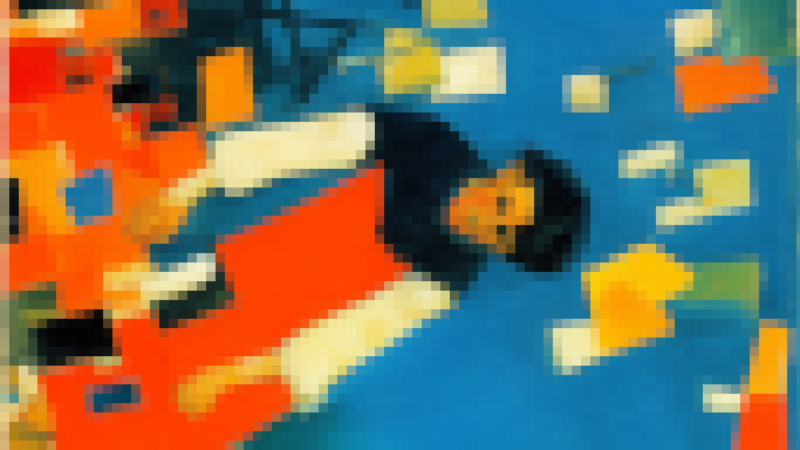November 1, 2020
Every few years we return to the voting booth. We press the buttons on names we may or may not know. We pull the lever for elected positions for which we may or may not know the job description. This year, some of us bubbled in a form, read the instructions carefully and dutifully returned our ballot to a special box sealed in an envelope in another envelope.
In more exciting news, my great commonwealth recently passed legislation to eliminate straight ticket voting. This is a victory in the name of political literacy and cultivating an informed electorate.
The voting booth is a ritual we engage as a part of democratic life. It is a part of the liturgy of a community united by the ideal that a people can govern itself. It does not, however, exhaust the terms of engagement for a democratic community. Not even a little bit.
The voting booth is not the site of democracy. The ground zero of a properly functioning democracy is the everyday. The everyday understood as remarkable rather than quotidian. At its best the democratic everyday is natural, ordinary without being mundane; it is instinctual but not irrational or unreasonable. At its worst it feels like existential instability; it is characterized by mistrust, apathy, and cynicism.
Sound familiar?
Democracy has still not fail us, though, for it has yet to be thoroughly tried.
If the choices presented to us at the voting booth have failed, it is not because democracy has failed us, it is because we have failed democracy.
At its center, democracy presumes that both the individual and the whole benefit from a choice infrastructure of negotiation and compromise. If the people should govern themselves together, in a united, self-determing body, then there must be a decision-making infrastructure through which differences of opinion can be overcome.
This means that there will always be parties who disagree with the outcome of the democratic decision-making process. It cannot be understated: the existence of a disagreeing, overruled party is fundamental to the existence of a democracy.
The governing infrastructure of democratic life requires consent of this minority. The minority does not consent to the correctness of the choice made. Rather, the minority consents to the democratic ideal: that compromise with, and ultimately concession, to the majority permits the stability and continuity of the shared democratic community. Stability and continuity of the whole in this case are valued higher than the explicit, unimpeded self-governance and self-determination of each particular minority party.
Alternatively, it requires the humility of the majority party, and its veritable attention to the dangling sword of Damocles. Power in governance always sets a precedent for how the disagreeing party may one day yield it.
There must be one democracy with multiple oppositions. Neither party lays claim to the outcome of the democratic process. Neither party supposes itself to be more properly emblematic of the whole than the other, for it could not be since the whole requires the other. The process always unfolds before, and blossoms out of the democratic life. The democratic community is one perpetually auto-deconstructing, auto-recreating state.
There are not two United States of America. Though our major parties are far too comfortable with the notion. The sweeping capacities of modern media and our effortless identification with virtual representations make this world-craft relatively easy for the party propagandists. (Or is “political marketing” easier to swallow?). This world-craft is a potent consensus-building strategy which proffers belonging through opposing political mythologies rather than leading by democratic example and raising up a public capable of navigating opposing ideological platforms which co-exist in and around a diverse public body. It is difficult to make a place for oneself in an open, heterogeneous community. It is much easier to identify with a binary opposition of either in or out.
Opposition and contention exist not in spite of our democratic values, but as fundamental to it. Assent to the democratic ideal is assent to the intrinsic value of a community where compromise and negotiation create an outcome for the whole better that which any of its opposing parts can achieve. The existence of opposing parties is crucial to the proper recognition of the democratic ideal. Democracy without opposition is not democracy.
As Chomsky has said repeatedly with regard to free speech, supporting free speech means supporting free speech for the people you don’t agree with. There are no two ways about this. Even Geobbels and Stalin supported free speech for the people with whom they agreed.
Democracy is the same devil. Championing democracy means championing the governing capacity of the people you disagree with. Even the most dictatorial autocratic believed in the free and democratic decision making power of the people with whom they agreed.
Existential distrust in the governing capacity of the other (party) is fundamentally opposed to the democratic spirit. Period. There are only two options: you are either a democrat who supports the governing capacity of those you disagree with, or you are not a democrat. Again, for emphasis, period.
You can agree or disagree as to some point of critical dissolution in a community—that is, when a certain party is so disenfranchised by its community it secedes. You can agree or disagree as to whether democracy is the best way to run our strange state of affairs. Be a republican, a monarchist, or a Stalinist, but this is what it means to be a democrat, and to build a community championing the democratic ideal.
Our democratic ideals do not terminate in the explicit choice that occurs at the voting booth. These ideals are cultivated every day in our unfolding relationships.
Every day I go to work, argue with my boss, deal with clients, drink at the bar, buy cigarettes at the corner store, and return to a shared home where there is laundry in the basket and dirty dishes on the counter. Are all parties to these engagements unanimously aligned on all opinions? No. Some more than others? Yes.
At its most basic levels, the call of civilized life and society is essentially democratic. The way we self-govern our most intimate spaces, whether it occurs explicitly or not, attempts to embody the democratic ideal. However, the continual sectarianization of the public, the stratification of communities, the dissolution of the real public square and our willing retreat into silos of likeness all follow from the retractive, undemocratic impetus of consumerism. Now, we see first hand how this impulse has fundamentally undermined democracy: by fencing, walling, gating, and hedging ourselves from the existential trouble of living in and with the other we have retreated further and further from the site of democratic life.
We are now faced with the economic and political residue of decades of stratification, which has undone the primary, and most elementary, classroom of democracy: the everyday. And this problem barely scratches the surface of the challenge democracy still poses to us.
“Even if the existing democracies are the best we can do at present, the least bad way to organize ourselves, still the present democratic structures are deeply undemocratic… Democracy does not exist, and the corruption of existing democracies must become the subject of endless analysis, critique, and deconstruction, for these democracies are hardly democratic. ”
(John D. Caputo in Deconstruction in a Nutshell)
For the modern nation-state the challenge of democracy grows in proportion to its size and heterogeneity. It requires much grander and expansive vision. It is a colossal undertaking to manifest the democratic spirit in immense, previously unimaginable political, economic and institutional planning. The self-governance of a democratic nation-state does not occur by free association as it sometimes blooms more willingly in our day to day existence. The democratic life is lived daily in a web of a thousand decisions that emerge freely from our most basic instincts for cultivating and thriving in a community. When this same decision making process is broadcast across a whole swath of persons, institutional and global phenomena with which we have no visceral connection or experience, the challenge of democracy metamorphoses outward to infinity and back.
And these institutional hurdles barely scratch the surface posed by political economy. Even Marx and Engels understood what they were trying to achieve in the Communist Manifesto as thoroughly democratic:
“The first step in the revolution by the working class, is to raise the proletariat to the position of the ruling class, to win the battle of democracy.”
In its simplest form, they perceived the glaringly undemocratic arrangement intrinsic to the infrastructure of political power and economic wealth. So they proposed a solution to this unsightly marriage in the name of democracy.
This is neither an endorsement nor denouncement of Marx and Engel’s ideas. Nor did I ever say you need to be a democrat. I’m simply saying, if you want to consider yourself a democrat this is what it means. These are the challenges we face. And there are many.




